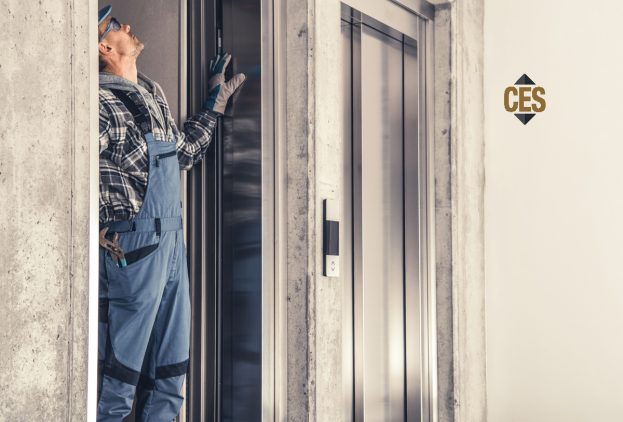Hydraulic Elevator Cost
On average, purchase and installation of an in-home hydraulic elevator costs $22,000-$53,000 in the U.S. in 2021. Besides a cable-driven elevator, hydraulic elevators are some of the most affordable in-home models on the market today, according to Fixr.
Hydraulic Elevators
Hydraulic elevators feature a piston which moves inside a cylinder to power the elevator. This will also control each motion the elevator makes. Since the entire power system comes from inside the shaft, there is no need for a mechanical or machine room. This is a key factor for most homeowners that don’t have a lot of extra space within the home.
There are two different hydraulic systems: holed and hole less. Holed systems will need a cylinder to go down into the ground. This will require construction of a pit. Hole less, meanwhile, do not need a pit to be constructed. Experts recommend that all cables be replaced at least every five years.
Home Elevator Costs By Type
- Cable Driven: $15,000-$35,000
- Hydraulic: $22,000-$53,000
- Geared Traction: $25,000-$38,000
- Chain Driven: $27,000-$62,000
- Gearless Traction: $29,000-$55,000
- Pneumatic: $35,000-$60,000
How Much Does Elevator Repair Cost?
Here are typical costs for elevator repairs in 2021:
- Motor Replacement: $12,000
- Piston gripper installation: $15,500
- Replace controller wiring: $4,500
- Cab Wiring: $4,500
- Cab operating Panels: $4,500
- Traveling Cables: $3,500
- Piston: $3,500
- Replace landing entrance doors: $3,000
- Door hardware (Mechanical): $1,500
- Door Hardware (electrical): $1,000
How Does A Hydraulic Elevator Work?
Hydraulic elevators do not use overhead machinery to hoist the cart, unlike common traction elevators. Instead of machinery to hoist, these elevators use the compression of fluids to generate upward and downward movement. The elevator cab is then lifted by an electric motor which pumps oil into the cylinder. This results in the movement of the piston.
To control the release of oil, hydraulic elevators incorporate electrical valves to ensure a pleasant ride for all elevator occupants. The fluid that is needed for these carts to operate must be oil-based. Some machines will utilize vegetable oil as a more environmentally-friendly option.
Hydraulic Elevator Types
- Holed Elevators
- Hole-less Elevators
- Telescopic Elevators
- Non-Telescoping Elevators
- Roped Elevators
A hydraulic elevator has a piston that is found at the base of the elevator to support it. The piston will then shove the elevator upwards while the motor moves an oil or hydraulic fluid into the piston. While the elevator descends the fluid is released trough a valve inside of the piston. These elevators are normally used in buildings that have no more than 8 floors and it only travels at 200 feet per minute. On the lowest level, across from the elevator will be the machine room.
This type of hydraulic elevator will have a sheave that extends under the floor of the elevator to the pit of the elevator, and while it is descending, the sheave will accept while pistons retract. Several configurations will have a telescoping piston that will collapse which requires a shallow hole under the pit. The maximum travel distance is about 60 feet. The hydraulic elevator that is hole less may have the piston on either side of the cab. For this particular configuration, the telescoping piston has been fixed in the pit, so it won’t need a sheave or a hole in the pit. Telescoping pistons will let the elevator travel 50 feet, where the non-telescoping piston will go up to 20 feet.
There will be a combination of ropes with a rope hydraulic elevator where the piston moves the elevator which has a travel distance of only 60 feet. The initial cost for this elevator will be lower as well as the maintenance costs when you compare it to the costs of other elevators. The hydraulic elevator will also use more energy than other elevators and that is because the electric motor is working against gravity while forcing hydraulic fluid into the piston. There is a drawback of having the fluids sometimes leak which can cause a hazard for the environment. The main reason that hydraulic elevators are not popular is because of past environmental risks that were involved with the energy use being really high.
Elevator Maintenance In Colorado
If you are looking for professional elevator upgrades, elevator modernization, elevator maintenance or elevator repair, in Denver, Lakewood, or surrounding areas of Colorado, Colorado Elevator Solutions can help!
